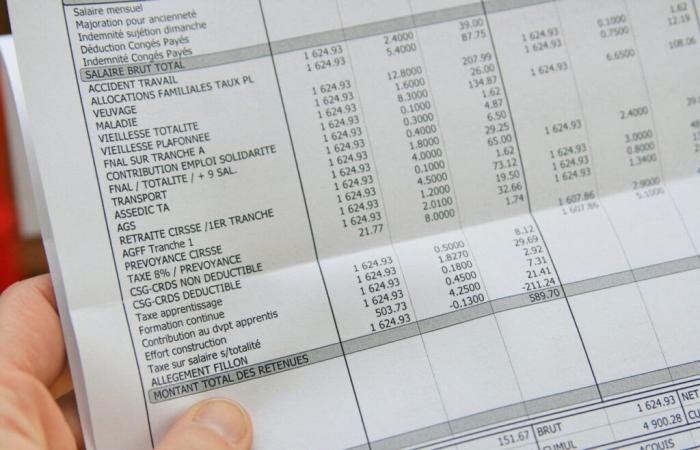Par
Editorial News
Published on
Jan 6, 2025 at 5:36 a.m.
See my news
Follow News
“This is a subject that has been close to my heart for a long time.” Jean-Baptiste Sizes, president of the start-up Eigrene, did not wait for the ax of the law to share his profit with his 12 employees. But many SME managers will have to get started in 2025.
From January 1, companies with 11 to 49 employees having carried out a net tax profit of at least 1% of their turnover over the last three years will have to put in place a value sharing system.
But according to a recent Ifop survey carried out for the consulting company Primeum in June, 57% of affected small and medium-sized businesses surveyed were unaware of this new obligation.
A law first for big businesses
Until now, this law only applied to companies with 50 employees or more, forced to redistribute part of their profits to their employees through a participation agreement.
“The economy is tense and I think that the priority of a majority of managers is to fill order books and ensure profitability for their company,” analysis from l'AFP Stéphanie Pauzat, vice-president of the confederation of SMEs (CPME), to explain this delay.
“Gift package” risk
If small businesses will have the choice between four schemes, including the participation bonus, it is the value sharing bonus (PPV), formerly the “Macron bonus”, capped at 3,000 or 6,000 euros per person under certain conditions, which could be favored as a priority by SMEs for its simplicity.
Jean-Baptiste Sizes, founder and director of Eigrene, a small start-up which advises bakers on energy, has already paid the “super flexible” and “practical” PPV several times, which seemed to him to be the best option to start with. .
May result from a unilateral decision by the manager and distributed, without performance conditions, to all employees, the former “Macron bonus” is nevertheless akin to a “gift package” with no incentive effect, underlines Émilienne Grenier, consultant in human resources at Spartes.
“There is no moral contract (…) between the company and the employees, we are not part of the long term”, agrees Jean-Baptiste Sizes. The young manager wishes to turn, in 2025, towards a system allowing him to “involve” his teams more “in the discussion” around the sharing of the wealth created.
Objectives and indicators
The risk of the PPV “is that employees do not understand why we are paying them, (…) that the following year, if the amount is not the same, they say to themselves: 'Where is my bonus? +,” explains Ms. Grenier.
Conversely, the incentive bonus, another system that can be used by SMEs, “makes it possible to start from what the company wants to do” and “to put in place indicators that are specific to it” to assess whether the objectives have been reached, or not, she continues.
The company can choose to set a goal based on turnover or profit, but also on the absenteeism rate or other more specific criteria, such as customer satisfaction, to trigger the payment of the bonus.
It is the “most suitable” option for small businesses, despite its greater administrative complexity, according to the consultant.
According to the Ipsos study cited above, 21% of business leaders surveyed declared that they would choose to implement a profit-sharing agreement in 2025, the second value sharing system cited in the survey after the PPV ( 43%).
No sanctions
To support business leaders, the executive had planned to launch a communication campaign from mid-January, with the participation of key players such as accountants, federations and even the regions.
But the portfolio of Interest and Participation, entrusted under the Barnier government to Marie-Agnès Poussier-Winsback, was abandoned during the reshuffle.
For the CPME, no worries. The companies concerned should end up getting up to speed “at the time of closing the accounts” of the year 2025 when “accountants communicate the new obligations incumbent upon” their clients.
No sanctions are currently provided for in the event of non-compliance with this obligation.
In addition to the three systems mentioned, supplementing a salary savings plan is the last lever that SMEs with more than 11 employees can use to comply with the law.
Source AFP
Follow all the news from your favorite cities and media by subscribing to Mon Actu.





